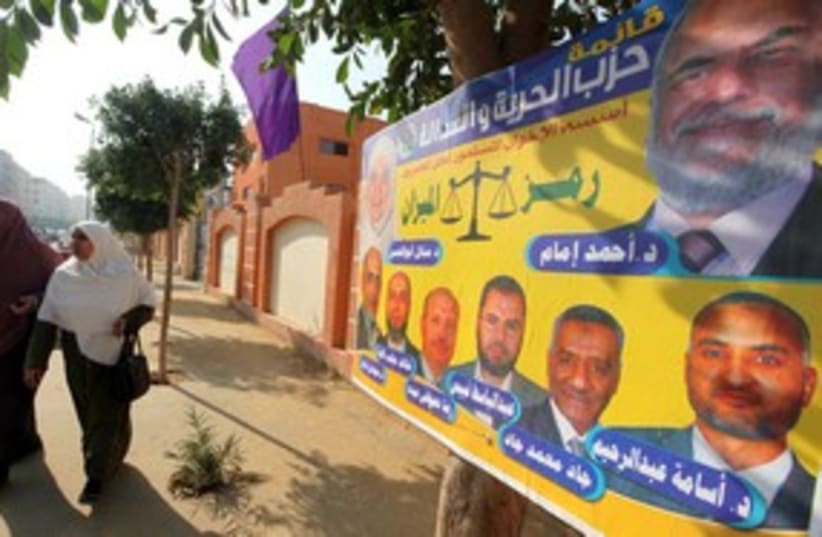The Muslim Brotherhood assured the United States that it will not break the Egyptian-Israeli peace treaty despite public statements to the contrary, a State Department spokesperson said Thursday."We have had other assurances from the party with regard to their commitment not only to universal human rights, but to the international obligations that the Government of Egypt has undertaken," State Department Spokesperson Victoria Nuland said in a briefing.RELATED:Egypt denies trying to stifle human rights movementIslamism: 21st century CommunismThe Muslim Brotherhood party’s deputy leader Dr. Rashad Bayoumi said the group will not recognize Israel “under any circumstance,” in an interview published in the Arabic daily al-Hayat on Sunday. “The Brotherhood respects international conventions, but we will take legal action against the peace treaty with the Zionist entity,” he told the newspaper.Nuland said that the Muslim Brotherhood was not a monolithic organization, and that the State Department would continue to seek private reassurances on Egypt's international obligations. "I would say that it is one member of the MB," Nuland said of Bayoumi's comments. "We will judge these parties by what they do."When asked whether it is a requirement for the government in Egypt to recognize Israel, Bayoumi responded by saying: “This is not an option, whatever the circumstances, we do not recognize Israel at all. It’s an occupying criminal enemy.”The deputy leader stressed during the interview that no Muslim Brotherhood members would ever meet with Israelis for negotiations.“I will not allow myself to sit down with criminals.”In recent Egyptian elections the Brotherhood’s Freedom and Justice Party (FJP) won 36.3 percent of the list vote, while the ultra-conservative Salafi al-Nour Party took 28.8%. The elections will determine the makeup of a parliament that will help draft a new constitution after decades of autocratic rule.The vote, staged over six weeks, is the first free election Egypt has held after the 30-year rule of president Hosni Mubarak, who routinely rigged polls before he was overthrown by a popular uprising in February.Reuters contributed to this report
US: Brotherhood says it won't break Israel treaty
State Department says US received private assurances from Islamist party contradicting its public statements on peace.
